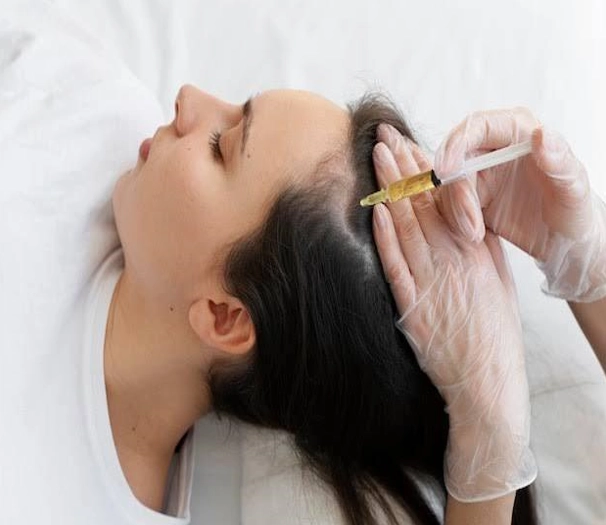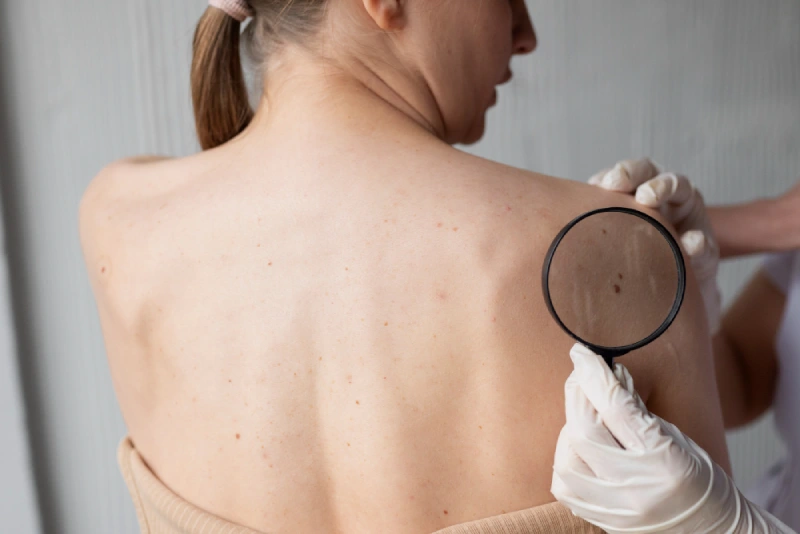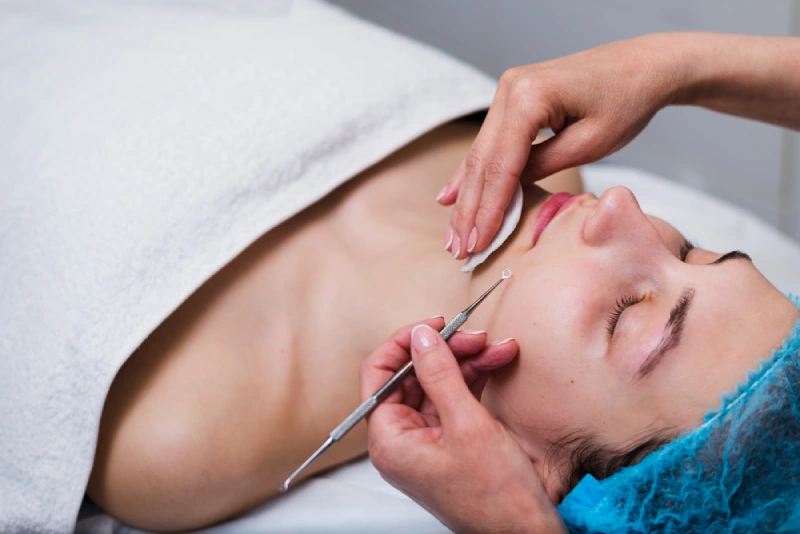Acne is frequently accompanied with hyperpigmented black spots or patches in people with skin of color. Fortunately, there are numerous home remedies that people with skin of color can use to help clean up their acne and any lingering dark spots.
Different skin tones and skin kinds are referred to as having “skin of color.” It includes persons of Native American, African, Latino, Asian, Mediterranean, and Middle Eastern ancestry. People with darker complexions tend to have similar skin-care issues. How to get rid of acne and the dark patches that frequently emerge when acne clears is near the top of this list.
Knowing what truly works (and what doesn’t) when it comes to treating darker skin types is the key to having clearer skin. You’ll discover ten recommendations for smoother skin below, according to science.
Take Care of Both the Dark Patches and the Acne
For the black spots, which can stay far longer than the acne, many people visit a dermatologist. Additionally, it’s crucial to cure acne. The black spots’ root cause is removed when the acne is treated. For the black spots, which can stay far longer than the acne, many people visit a dermatologist. Additionally, it’s crucial to cure acne. The black spots’ root cause is removed when the acne is treated.
Early acne treatment can help you avoid scarring and dark spots.
According to studies, addressing acne as it first appears can stop it from getting worse. People with skin of color have an increased chance of getting the following conditions if acne progresses and becomes moderate to severe before treatment begins:
- Darker skin patches and spots
- A particular elevated scar, called a keloid
Utilize Acne Treatments that are Effective on Dark Complexions
Not all acne medications are effective on skin of color. Dermatologists advise using products that include one or more of the following substances if you’re seeking for solutions to treat minor acne. It requires purchasing two distinct products, but using a retinoid and benzoyl peroxide together benefits skin of color. The retinoid aids in pore cleaning and inflammation reduction. It can get rid of whiteheads, blackheads, and pimples. A retinoid can stop fresh breakouts from occurring.
The acne-causing bacteria can be eliminated with benzoyl peroxide. You shouldn’t be concerned that it will result in light patches on your skin. That is untrue. Not at all. Unfortunately, it will bleach towels, bed linens, and apparel.
Begin with a product that contains 2.5% benzoyl peroxide to prevent skin irritation from benzoyl peroxide. More concentrated products might exacerbate acne by causing dryness and flaking. Try applying the 2.5% product once every other day if it upsets your skin.
Salicylic acid: This compound’s main function is to clear clogged pores and stop the development of fresh pimples.
Retinol: This can lighten dark spots and unclog pores.
Benzoyl peroxide, salicylic acid, or retinol are ingredients in acne treatments that are available over-the-counter.
One kind of retinoid is retinol. Adapalene gel 0.1% is another retinoid that might be beneficial. It can now be purchased over-the-counter under the brand name Differin gel thanks to approval from the American Food and Drug Administration (FDA).
Acne Only on Your Forehead and Temples? Take Some Action
Your hair oil may be the reason for acne that only develops in these locations. This is so typical that it even has a name: pomade acne. By making simple adjustments, you might be able to get rid of this acne. Dermatologists provide the following options to their acne patients:
- Use a different hair care product—one with glycerin or water—instead of one with oil.
- Only apply the hair oil to the ends of the hair and the center of your scalp.
- Another alternative is to cease to use these hair care products if you still get outbreaks.
Make Sure to Only Use Skin Care Items that Won’t Clog Pores
Your skin-care products can be the root of your outbreaks, similar to hair oil. Your pores may become clogged if you apply an oil-containing product on your face, back, or chest. Examples include cocoa butter and shea butter. Acne can be brought on by clogged pores.
Use only skin care products that are marked “non-comedogenic” or “won’t clog pores” to avoid acne-causing skin care products.
Stop Covering Dark Marks with Thick, Greasy Make-Up
Although many women find this to be a good technique to conceal blemishes, they frequently are unaware that it also contributes to the development of new blemishes. If you opt for mineral makeup or cosmetics marked “non-comedogenic,” you are permitted to wear makeup. Dark areas can be effectively concealed using mineral makeup.
Take Care of Your Skin
Do you wash your skin with a scrub to help get rid of acne scars? Do you truly believe that using harsh soaps or popping zits can clear up your skin? As difficult as it may be to accept, the truth is that these factors make acne worse.
Science has proven that using mild skin care is the best method for clearing acne. When treating acne-prone skin:
- A gentle cleanser that won’t clog your pores should be used. (The label may state that it is “non-comedogenic” or “won’t clog pores”).
- Only use your fingertips to gently apply the cleanser and to clean and rinse your face.
- Dry your skin gently with a fresh towel.
Regularly Wash Hats and Caps
Wearing anything on your head, including a baseball cap, without washing (or dry cleaning), allows sweat, filth, and oil to build up. This might aggravate acne.
Before Undergoing Any Kind of Chemical Peel, Microdermabrasion, or Laser Therapy Consult a Physician
Even at-home versions of these acne treatments might have unwanted side effects including persistent black markings and bright spots if you have darkly pigmented skin. However, in the proper hands, these procedures can be successful in curing acne in people with skin of color.
If you’re considering one of these procedures, you should consult a physician with expertise in skin care, such as a dermatologist. People with skin of color should routinely receive this therapy from the dermatologist. It Is important to find out how many patients the physician has treated who have darker complexion.
Consult a Dermatologist
Almost all cases of acne and the majority of dark spots can be properly cured with a dermatologist’s assistance. Some folks require medication with a prescription. Some people require a particular set of therapies. A dermatologist can inspect your skin and develop a customized treatment plan for you.




